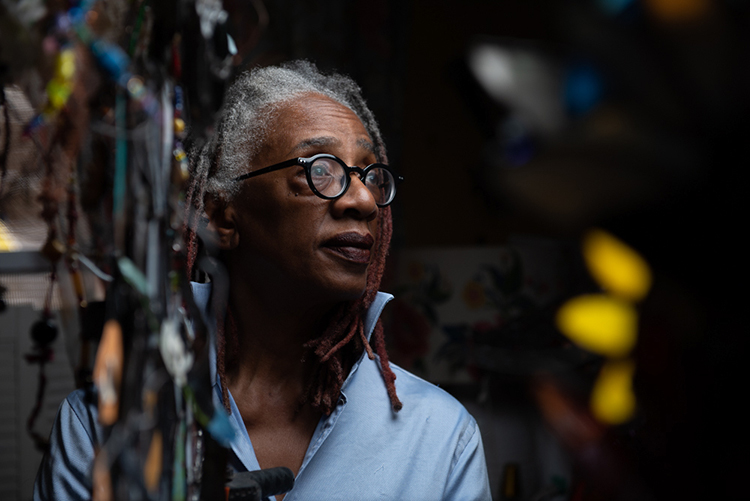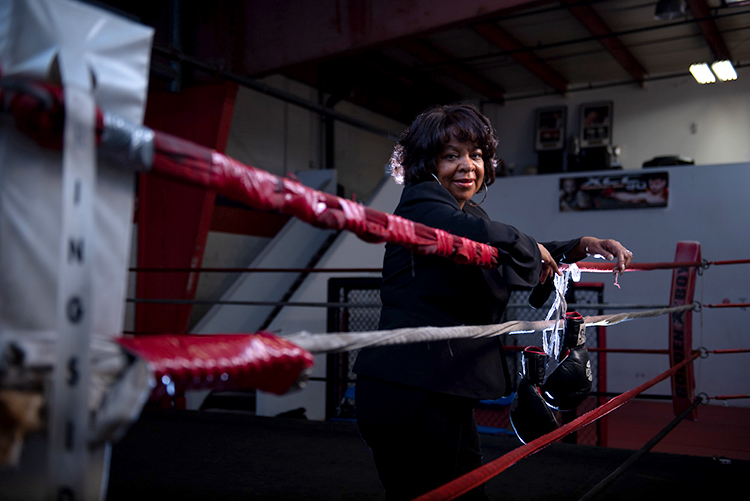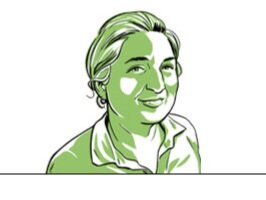By Constance Garcia-Barrio
Devaluing black women’s work is a holdover from slavery time. It often cuts our employment opportunities, according to the Economic Policy Institute, a Washington, D.C. think tank focused on economic issues.
The view prevails that women of African ancestry should go on being “…de mule uh de world…” as the acid pen of Harlem Renaissance author and anthropologist Zora Neale Hurston (1891–1960) put it. This disregard can not only limit career choices but also slash earnings.
“Black women in the U.S. are typically paid 61 cents for every dollar paid to white men,” states a 2018 study by the American Association of University Women, a nonprofit group working for equity for women and girls.
Nevertheless, two local black women have beat the odds. Both have had secondary careers that are truly remarkable.
“I never thought I’d get my commercial driver’s license,” says Celestine Wilson Hughes, 71, who’s driven a school bus for the School District of Philadelphia for years. “It was traditionally men’s work, and I love that I have the skill.”
Hughes credits an excellent instructor for helping her meet the challenge. Her routes wind through South Philly as well as Darby, where she lives; she drives a bus for that school district, too.
The work entails more than steering buses that weigh up to 13 tons.
“You have the responsibility to be the best person you can be with children,” says Hughes, who has a grown son and a granddaughter. “You greet each child by name, look them in the eye and smile. You make a connection.”
Hughes also stays observant.
“You pay attention to whether the child’s clothes are clean or dirty, whether the child is hungry, whether he or she smells like urine,” she says.
If children misbehave, Hughes gives them extra attention.
“Children may not have words to say something’s wrong,” she says. “All they can do is act out.”
The downtime between ferrying children to and from school lets Hughes prep for her second career, that of stained glass artist. She wraps the small pieces of glass she’s cut for use in her creations in copper foil—a process that hurts her fingers—and later solders the pieces together.
Her colorful sculptures have appeared in many places, including the African American Museum, the Free Library of Philadelphia on Logan Circle and Stax Museum of American Soul Music in Memphis, Tennessee.
Hughes tiptoed onto Philly’s arts scene.
“First, I painted T-shirts with my own designs,” says Hughes, who was raising her son as a single mother at the time. “I had to let the paint on the shirts dry, then I embroidered them for a three-dimensional effect. Once, when they were drying outside, someone stole every one of them.”
Hughes also made jewelry and vivid wooden figures. In her late 40s, she began working with stained glass after a friend persuaded her to come along to a workshop.
“I made a small glass boat, and I knew I’d found a home,” Hughes recalls.
Hughes has gained fame for her exuberant black female figures. They have broad hips, big butts, generous lips, and, sometimes, a heart-shaped womb.
“Children don’t have to look twice at one of my figures to know it represents a black person,” she says. “In my childhood because of systemic racism I saw few black images. Their absence conveyed unworthiness and acted as silent indoctrination. My art celebrates who we are as a people.”
Philadelphia native Lynne Suzette Carter, sixty-something, has also used smarts and drive to forge a satisfying work life.
Soon after graduating from Cardinal Dougherty High School, she began working as a clerk and typist in the Philadelphia Streets Department. Over the course of her 39 years there, she held many positions, including computer support specialist. By the time she retired this June, she had risen to supervisor of the unit that oversees removal of “bandit” signs, those that mar the cityscape because they’re left up indefinitely.
While in the Streets Department, Carter also launched a second career that took her into a male preserve: she became a professional judge of boxing matches.
“What happened was, my first boyfriend and his brothers liked to see boxing matches,” she says. “They took me along and realized that I usually made the same call as the referees. I picked the winner. They said, ‘You’re pretty good!’”
Carter decided to become a judge, but ran up against nay-sayers aplenty.
“The State Athletic Commission told me that it was no job for a woman, but I kept on,” she says.
She asked boxing superstar Joe Frazier (1944–2011) for help. Frazier’s secretary persuaded him to see Carter. “When I asked him to train me, he said, ‘I don’t like judges and I don’t like referees.’ He tested me by asking what I thought of a certain well-known boxer.”
As Carter drew breath to praise the boxer, Frazier’s secretary made a discreet thumbs down sign, so Carter said that boxer wasn’t so hot.
“Then Joe Frazier said, ‘Okay, I’ll train you,’” she says.
Carter went to Frazier’s gym three or four times a week.
“He made me get in the ring and throw punches,” says Carter of Frazier, world heavyweight champ from 1970-1973. Carter spent hours at ringside, learning and scoring. By March 1982, she had become a professional judge in Pennsylvania. Next, she set her sights on Atlantic City, a boxing hub.
“I had to train all over again with Jersey Joe Walcott,” a 1950s heavyweight champion, she recalls.
By 1982, she was officiating down the shore.
Meanwhile, Carter continued to work for the Streets Department.
“I could do it because boxing matches basically take place on the weekends,” she says.
She also made strategic use of her vacation time, personal days, annual leave and comp time so she could judge fights. Carter has judged boxing matches not only in the U.S. but in Europe, Asia, South America and Africa.
“When I officiated in South Africa, I got to go on safari and into villages. Boxing has been good to me,” says Carter.
In the pursuit of both their careers and passions, each woman found a winning formula.
“I decided what I wanted to do and I just
kept going,” Carter says.
And Hughes, likewise.
“If you’re committed to accomplishing something,” Hughes says, “the universe will bring you what you need.”








Why no mention of Velma "Babytnt Garrick", Philly’s 1st African American Female boxing Referee? She was known by all of Philly’s boxing circles in those times, even Lynn Carter and Joe Frazier and his family.